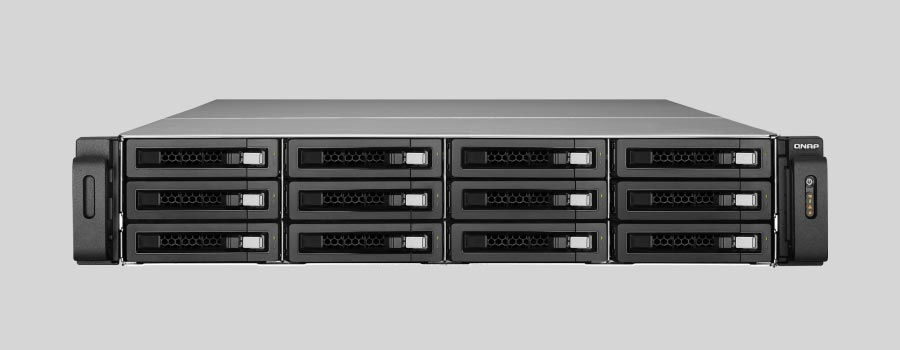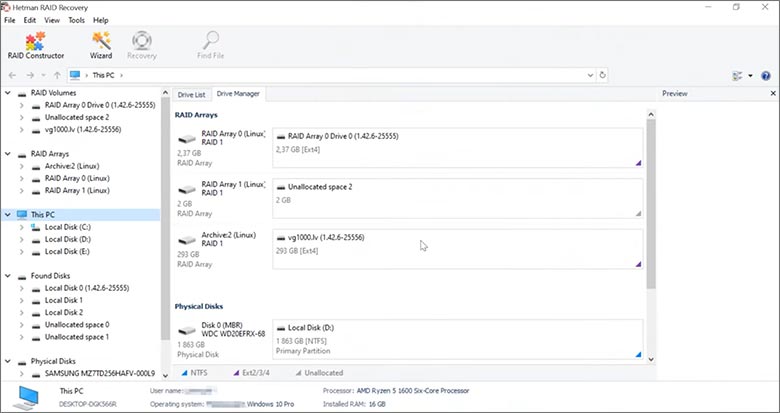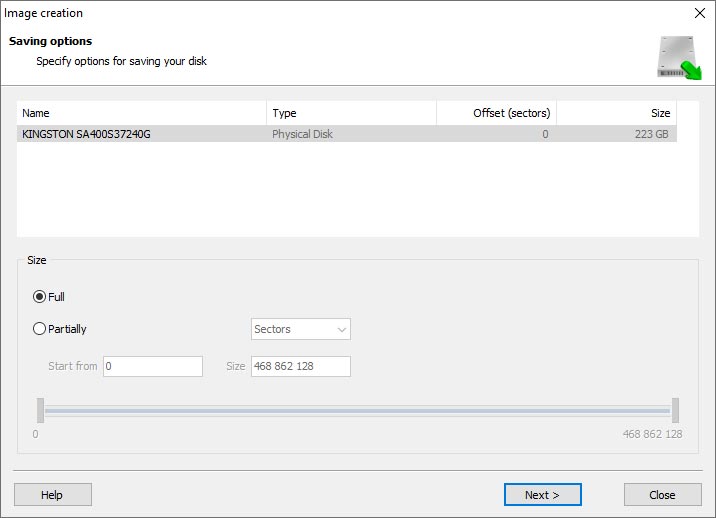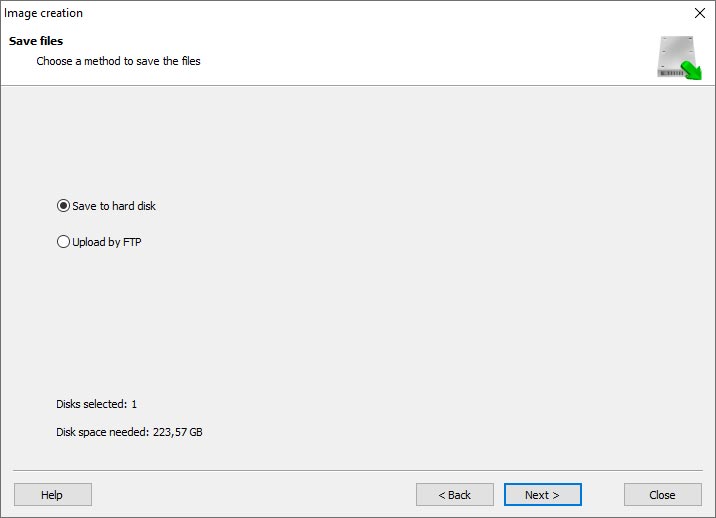
- Why Regular Data Recovery Tools Can’t Restore Files from RAID
- Key Information About the NAS QNAP Turbo Station TS-EC1279U-RP
- How to Remove Hard Disks from Your NAS and Connect Them to a PC
Why Regular Data Recovery Tools Can’t Restore Files from RAID
Conventional hard drives store user data by writing it sequentially across the disk surface, which means an entire file is typically located on a single drive. In contrast, when data is written to a RAID array, each file is split into multiple fragments. These fragments are then distributed and written in sequence across all the drives in the array. Depending on the configuration, fragment sizes can range from 2 KB to 2 MB, so every file is physically stored across several disks at once.
This approach significantly increases read and write performance — after all, writing two halves of a 1 GB file to two drives simultaneously is much faster than writing the full 1 GB to a single disk. However, this same mechanism makes file recovery far more complex.
Different RAID levels use different methods to distribute and protect data. On top of that, manufacturers like QNAP often add their own proprietary structures and variations. As a result, data can be written to disks in many different formats, and each requires a specific approach during recovery.
How can a NAS QNAP Turbo Station TS-EC1279U-RP device's power management settings impact data availability and potential loss?
The power management settings of a NAS QNAP Turbo Station TS-EC1279U-RP device can impact data availability and potential loss in the following ways:
- Power outage: If the power management settings are not properly configured, a sudden power outage can result in the NAS device shutting down abruptly. This can lead to data loss or corruption if any ongoing read/write operations are interrupted.
- Scheduled power off/on: The NAS device may have a scheduled power off/on feature to conserve energy during non-working hours. If the power off time is not synchronized with the backup or synchronization schedules, it can result in incomplete or missed backups, leading to potential data loss.
- Disk spin-down: Some NAS devices have the option to spin down idle hard drives to save power. While this can reduce energy consumption, it may cause a delay when accessing data stored on those drives, resulting in slower performance. Additionally, frequent spin-up/spin-down cycles can increase wear and tear on the drives, potentially leading to premature drive failure and data loss.
- UPS integration: Power management settings can include integration with an Uninterruptible Power Supply (UPS) system. A properly configured UPS can provide backup power during a power outage, allowing the NAS device to gracefully shut down, minimizing the risk of data loss or corruption.
- Wake-on-LAN: Wake-on-LAN is a feature that allows the NAS device to be powered on remotely. If this feature is enabled and not properly secured, it can potentially be exploited by unauthorized users, leading to data breaches or loss.
To mitigate the impact on data availability and potential loss, it is important to:
- Configure power management settings according to the specific requirements and usage patterns of the NAS device.
- Ensure that backup and synchronization schedules are properly aligned with the power off/on schedules.
- Regularly monitor and test UPS systems to ensure they are functioning correctly.
- Consider the trade-off between power savings and performance when configuring disk spin-down settings.
- Implement appropriate security measures, such as strong passwords and network access controls, to protect against unauthorized access through Wake-on-LAN or other remote power management features.
How to Remove Hard Disks from Your NAS and Connect Them to a PC
Although the NAS Turbo Station TS-EC1279U-RP can be accessed over the network, you still need to remove its hard disks and connect them directly to a Windows PC. Only then can the recovery software properly scan and analyze the drives. Follow these steps:
-
Power off the NAS and disconnect it from the power source.
WARNING! Before removing any drives, carefully read the device manual. Improper actions may damage both the NAS enclosure and the hard disks in the RAID array.
-
Remove the hard disks one by one, gently sliding each drive out of its slot. Remember that hard disks are highly sensitive: any impact or drop can cause serious physical damage.
-
Label each hard disk according to its position inside the NAS. The order of the drives is crucial for correct RAID reconstruction.
-
Connect the drives to your computer. In this video, we explain which ports you can use to connect hard disks and what to do if your PC does not have enough free connectors.
Go to view
Step-by-Step Data Recovery with Hetman RAID Recovery

This program restores data from damaged RAID arrays and is fully compatible with QNAP Turbo Station TS-EC1279U-RP. Each hard disk in the array contains technical metadata describing how files were written. When launched, Hetman RAID Recovery analyzes this metadata, automatically reconstructs the damaged array, and provides access to its contents. After that, you can browse the recovered disk and save your files. The program can also restore files that were accidentally deleted from the network drive.

How to recover data from a QNAP
Turbo Station TS-EC1279U-RP has 12 HDD slots, and it supports the following array types:
- RAID 50;
- RAID 60;
- RAID 5;
- RAID 6;
- RAID 10;
- RAID 0;
- RAID 1;
- JBOD;
NAS supports:
- ZFS;
- EXT4;
- EXT3;
- exFAT;
- FAT32 (External Disk Only);
- NTFS (External Disk Only);
- HFS+ (External Disk Read Only);
How to Safely Recover Data from Disk Images
This utility allows you to create a complete copy of a disk and work with the disk image instead of the physical drive. This approach helps protect your data from:
- Overwriting during the recovery process;
- Additional data loss caused by bad sectors;
- User errors.
To create a disk image, follow these steps:
-
Ensure you have enough free space to store the image. Its size will typically match the size of the original disk.
-
In the main window, select the target disk and choose Tools - Save Disk. You can also select multiple disks if needed.
-
When the Image Creation Wizard opens, select whether you want to save the entire disk or only a specific region. Adjust the settings and click Next.

-
Choose the directory where the image will be saved. You may select any available disk connected to your PC or upload the image via FTP.

Where Are the User’s Files Actually Stored?
The QNAP Turbo Station TS-EC1279U-RP network-attached storage keeps QTS (QuTS hero) operating system files on a separate RAID 1 (mirrored) array. Usually, all NAS systems create several volumes on every hard disk, and the first of them takes up to 2 Gb of space. This is where operating system files are stored. Other volumes are united into a RAID array where user’s data is written.
RAID Recovery Software: Detailed Comparison
| Product | Operating system | RAID controller support | Supported file systems | Virtual RAID controller support | Data recovery from damaged RAID | File preview |
|---|---|---|---|---|---|---|
| Hetman RAID Recovery | Windows, Linux, MacOS | Yes, over 100 controllers | FAT, exFAT, NTFS, ReFS, APFS, HFS+, Ext4, Ext3, Ext2, ReiserFS, Btrfs, VMFS, Hikvision, XFS, UFS, ZFS | Yes | Yes | Yes |
| DiskInternals RAID Recovery | Windows | Yes, over 10 controllers | FAT, NTFS, Ext2/3/4, HFS+ | No | Yes | Yes |
| R-Studio | Windows, Mac, Linux | Yes, over 20 controllers | FAT, NTFS, Ext2/3/4, HFS+ | Yes | Yes | Yes |
| UFS Explorer RAID Recovery | Windows, Mac, Linux | Yes, over 100 controllers | FAT, NTFS, Ext2/3/4, HFS+ | Yes | Yes | Yes |
| EaseUS Data Recovery | Windows | Yes, over 20 controllers | FAT, NTFS, Ext2/3/4, HFS+ | No | Yes | Yes |
| ReclaiMe Free RAID Recovery | Windows | Yes, over 100 controllers | FAT, NTFS, Ext2/3/4, HFS+ | Yes | Yes | Yes |




I apologize, but I don't have access to specific firmware updates or patches for the QNAP Turbo Station TS-EC1279U-RP devices. It is recommended to visit the official QNAP website or contact their customer support for the most up-to-date information regarding firmware updates and patches for data recovery.